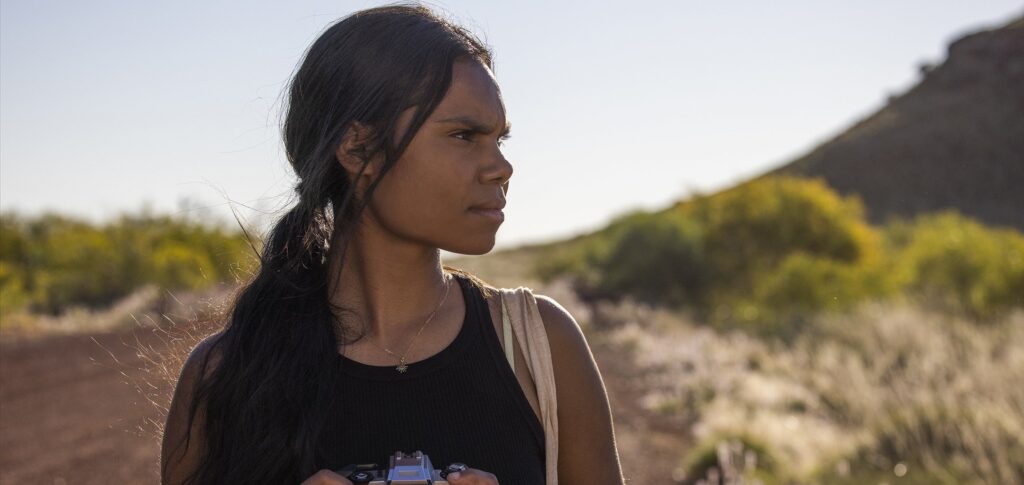Jub Clerc is a Nyul Nyul/Yawuru woman from the Kimberley in Western Austrlia. Clerc spent many years in theatre before moving into film and television, working on multiple award-winning productions. Clerc has written and/or directed short films, documentaries, and TV series including “Storytime,” “Music Men,” “Min Min Light,” and “Struggling Songlines.” In 2014, she directed and adapted “Abbreviation,” a chapter from Tim Winton’s “The Turning.” Jub’s debut play “The Fever and the Fret” premiered at Yirra Yaakin Theatre Co. and won the 2017 Kate Challis Award.
“Sweet As” is screening at the 2022 Toronto International Film Festival, which is running from September 8-18.
W&H: Describe the film for us in your own words.
JC: “Sweet As” is a coming-of-age road movie that follows at-risk teen, Murra, who is thrown an unusual life line in the form of a photo safari through the remote Australian outback. It sets her off on a wild adventure of self-discovery, first crushes, and endearing new friendships.
W&H: What drew you to this story?
JC: “Sweet As” is inspired by a journey i took in my youth for “at-risk” teens. I was drawn to telling it now because I felt it was a story that would resonate with my mob, including our teens and the adults we became.
W&H: What do you want people to think about after they watch the film?
JC: I want them to think about our kids and what second chances look like. What part trauma plays in our societal conceptions of retribution.
I would love people to embrace their own resilience and remember the joy of play. And to know how special my people are and how precious country is to us.
W&H: What was the biggest challenge in making the film?
JC: COVID! I don’t think has been a film made in the last three years that hasn’t buckled under the weight of COVID. Our remote locations and soaring temperatures were also interesting! Ha!
W&H: How did you get your film funded? Share some insights into how you got the film made.
JC: We are really lucky in Australia that we have screen bodies like Screen Australia and Screenwest that fund screen content. We also had fantastic support from the MIFF Premiere Fund and VicScreen where we did our post. I won the Screenwest – West Coast visions for $750,000. This triggered the other funding bodies to come on board to help us make the film.
W&H: What inspired you to become a filmmaker?
JC: I was inspired to become a filmmaker because I am passionate about telling my peoples stories with a Blak Lens.
W&H: What’s the best and worst advice you’ve received?
JC: Best advice: What’s worse than hearing no is not even asking.
Worst advise: Fix it in post! Ha. I mean it helps, but it’s best to try and solve it on the day. Note: I’ve been guilty of giving myself my own worst advice on occasion. Ha!
W&H: What advice do you have for other women directors?
JC: Have more confidence than a mediocre white man.
W&H: Name your favorite woman-directed film and why.
JC: “Bran Nue Dae” by Rachel Perkins because I have family history with the original play and it brought me so much joy to see it on the big screen.
W&H: What, if any, responsibilities do you think storytellers have to confront the tumult in the world, from the pandemic to the loss of abortion rights and systemic violence?
JC: I think we have a huge responsibility. We are often the voices of the most repressed. My main reason for becoming a filmmaker.
W&H: The film industry has a long history of underrepresenting people of color onscreen and behind the scenes and reinforcing — and creating — negative stereotypes. What actions do you think need to be taken to make Hollywood and/or the doc world more inclusive?
JC: Screen funding institutions, festival selection boards, festival juries, jfilm critics, and screen unions need to have diversity and equality quotas in their mission statements that are implemented through their organizational strategic planning.







